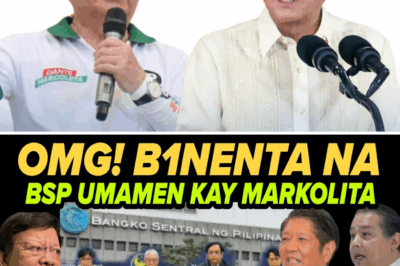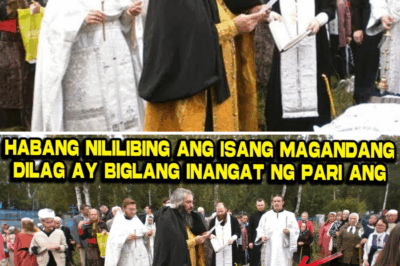When Congressman Paolo Duterte and former Foreign Affairs Secretary Teddy Boy Locsin called the attempt to serve an International Criminal Court (ICC) warrant on former President Rodrigo Duterte a “kidnapping,” the statement ignited a political storm. But retired General Nicolas Torre III, the former CIDG chief at the center of the operation, is setting the record straight — and his version of events paints a vastly different picture.
Speaking in a recent video, Torre calmly dismantled the narrative that the former president had been targeted illegally. He acknowledged that Duterte’s son Paolo and Locsin are entitled to their opinions, but firmly reminded the public that the matter is already in the hands of the court. “These are their opinions,” Torre said, “but the case is now with the judiciary. Let the court decide.”
The controversy began when authorities attempted to serve the ICC-issued warrant to Duterte — a move that his supporters quickly branded as a “kidnapping.” Paolo Duterte, known for his fiery rhetoric, even warned that those behind the operation would “pay for what they did.” Teddy Boy Locsin echoed the sentiment online, calling the event “an assault on Philippine sovereignty.”
But Torre’s clarification — and the details now emerging — suggest otherwise.

The 12-Hour “Kidnapping” That Wasn’t
Far from being a covert abduction, the event in question unfolded over 12 hours at what media dubbed “Villa Airbag.” Reporters were on the scene. Cameras rolled. Even Honeylet Avanceña, Duterte’s partner, was allegedly involved in a scuffle that resulted in her striking a female officer with a cellphone — an incident caught by multiple witnesses.
As commentator Chris Ulo noted in his breakdown of the event: “If it were truly kidnapping, there wouldn’t be negotiations, cameras, or media coverage. There would be no time for debates or interviews. The truth is, this was a lawful and transparent attempt to serve a warrant issued under international cooperation protocols.”
RA 9851 — The Law They Can’t Deny
General Torre went further, reminding critics of a critical fact: the legal foundation for cooperating with the ICC was established long before Duterte’s presidency — through Republic Act No. 9851, known as the “Philippine Act on Crimes Against International Humanitarian Law, Genocide, and Other Crimes Against Humanity.”
And here’s the twist: Teddy Boy Locsin himself was part of the House of Representatives that passed this law. He did not oppose it. He did not abstain. That same law explicitly allows the Philippine government to surrender any Filipino charged with crimes against humanity to an international tribunal.
“Locsin cannot complain about a law he helped enact,” Torre said pointedly. “If he truly disagreed, he had every opportunity to vote against it.”
Chris Ulo, the host who analyzed Torre’s remarks, was even more direct: “Locsin’s relevance today may have faded, but history doesn’t forget. He cannot pretend that the same law he once endorsed is now invalid simply because it’s being used against Duterte.”
Following Orders — Not Politics
At the time of the ICC incident, Gen. Torre was serving as the Director of the Criminal Investigation and Detection Group (CIDG), not yet the PNP Chief. His role, as he emphasized, was to follow lawful orders.
The ICC’s request to Interpol triggered a chain of cooperation — one that the Philippines, as a member of the international police organization, was obligated to honor. Torre’s team coordinated accordingly, following standard procedure.
President Ferdinand “Bongbong” Marcos Jr. had earlier underlined the importance of maintaining good relations with Interpol. “If we refuse to cooperate with international warrants now,” he said, “why should Interpol help us when we need to capture fugitives abroad?”
It’s a point Torre echoed: compliance with global law enforcement systems is not optional — it’s part of the Philippines’ responsibility as a member of the international community.
Duterte’s 2019 ICC Withdrawal — A Shield, Not Sovereignty
One of the video’s most striking revelations concerns Duterte’s 2019 withdrawal from the ICC. According to the speaker, the move wasn’t about defending Philippine sovereignty — it was about shielding himself.
Duterte withdrew from the ICC unilaterally, without congressional or senatorial consultation, right after former Senator Antonio Trillanes IV filed a case of “crimes against humanity” in 2017. At that time, the Philippines was still a full ICC member, having joined in 2011 under President Aquino. The alleged crimes — extrajudicial killings linked to Duterte’s bloody “war on drugs” — fell squarely within the ICC’s jurisdiction.
By pulling the country out of the ICC in 2019, Duterte effectively cut short any ongoing or future investigations against him.
“If Duterte were truly unafraid, he would have faced the ICC head-on,” the speaker said. “But he withdrew — not to protect the Philippines, but to protect himself.”
It was a move that, ironically, failed to erase his name from Interpol databases. As Chris Ulo quipped, “He forgot to delete himself.”
A Test of Truth and Accountability
The case now lies in the courts. Whether Duterte will ultimately be compelled to face international charges remains uncertain, but the legal foundation is clear: RA 9851, which his allies once embraced, is the very instrument that now enables justice to reach him.
General Torre’s stance, measured yet firm, reminds the public that law enforcement is not about politics or personalities. “I simply did my duty,” he said. “The law is the law.”
In the end, the story isn’t about kidnapping — it’s about accountability, history, and the uncomfortable truth that those who once held power are not beyond its reach. The same laws they once wielded are now knocking on their own door.
News
Ang High-Tech na Mansyon ni Alden: Bakit Ang Dream House ng Aktor ay Literally Katabi ng Bahay ni Kathryn Bernardo
Ang mundo ng showbiz ay isang entablado kung saan ang pangarap ay nagsasaling-wika sa katotohanan, at ang pag-ibig ay madalas…
Araw ni Bonifacio 2025: Ang Trillion Peso March, Pagtawag ni Catriona Gray sa Pananagutan, at Ang “Under Control” na Gulo sa Mendiola
Ang Araw ni Bonifacio, na ginugunita tuwing Nobyembre 30, ay tradisyonal na ginagamit bilang plataporma ng sambayanan upang ipahayag ang…
Ang Laban ng mga Mana: Eman vs. Jimwel Pacquiao – Sino sa mga Anak ni Manny Ang Hahawak sa World Title ng Boxing
Sa mundo ng professional boxing, ang pangalan ni Manny “Pacman” Pacquiao ay hindi lamang isang apelyido; ito ay isang simbolo…
Ginto, Bilyong Insertions, at Ang ICC Drama: Ang Naglalagablab na Katotohanan sa Likod ng Marcos Administration’s Sekreto
Ang pulitika sa Pilipinas ay muling nagliliyab, hindi dahil sa isang kakaibang celebrity gossip, kundi dahil sa mga seryoso at…
Ang Second Life sa Kabaong: Paano ang Isang Pari, na Dating Combat Medic, ang Nagbunyag ng Drug Smuggling at Nagligtas ng Buhay sa Gitna ng Libing
Ang buhay ay madalas na punong-puno ng pagbabago, at ang paghahanap ng layunin ay kung minsan ay matatagpuan sa mga…
Ang No-Fail Test ng Kabutihan: Paano ang Helicopter Crash ang Nagbunyag sa Tunay na Ugali ng Kasintahan at mga Empleyado ng Bilyonaryo
Ang tunay na yaman ay hindi nasusukat sa dami ng ari-arian o sa bigat ng bank account; ito ay matatagpuan…
End of content
No more pages to load












